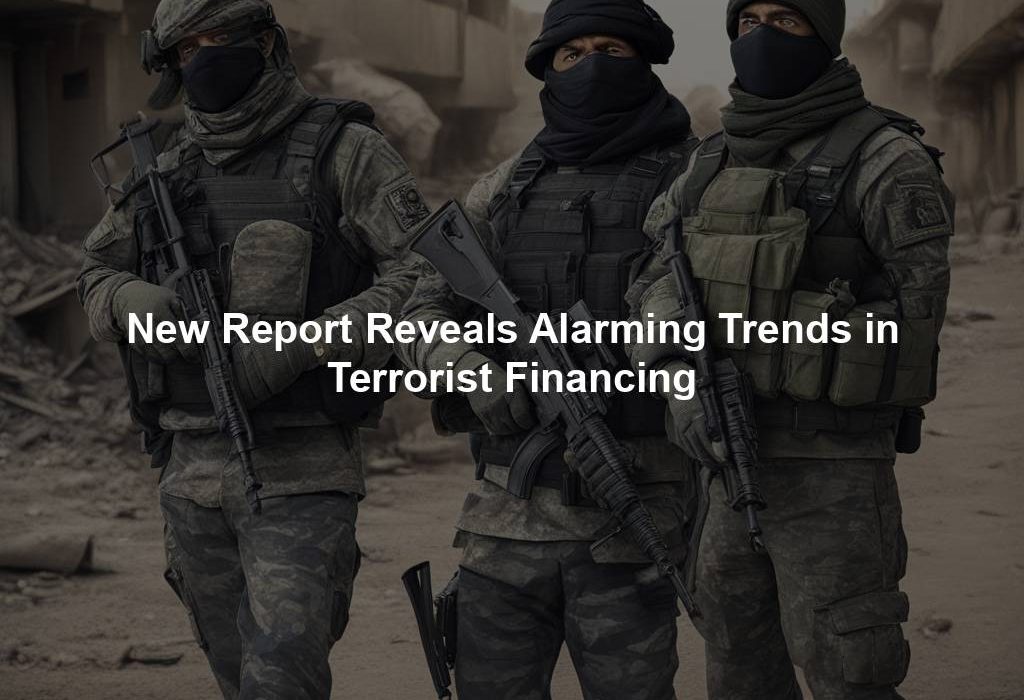A recent publication by the Global Financial Integrity (GFI) has brought to light unsettling trends in the realm of financing terrorism. Delving into data sourced from financial entities, law enforcement units, and governmental establishments, the report sheds light on the intricate ways in which terrorists finance their sinister operations and agendas.
One prevalent avenue for terrorist financing, as disclosed in the report, involves the clandestine movement of cash. This method, known as cash smuggling, entails physically transporting substantial sums of money across borders to evade detection by authorities. The funds acquired through cash smuggling often fuel various terrorist endeavors such as weapon procurement, establishment of training camps, and recruitment drives.
Additionally, the report underscores trade-based money laundering as another frequently employed tactic for funding terrorism. By manipulating the value of goods and services in international trade transactions, malevolent groups can obfuscate the origins of their funds. By artificially inflating the value of items or services, terrorists can navigate funds across borders discreetly.
Moreover, the report illuminates the complicit role of non-profit organizations in facilitating terrorist financing. Some nefarious groups exploit charitable and non-profit entities as facades to amass funds for their operations. By assuming the guise of legitimate charities, these groups duplicitously solicit donations from unsuspecting individuals with the guise of supporting humanitarian causes.
Furthermore, the report highlights the escalating employment of virtual currencies like Bitcoin as a burgeoning trend in terrorist financing. Virtual currencies offer a shroud of anonymity lacking in traditional banking systems, enabling terrorists to transfer funds clandestinely without detection.
The report underscores the imperative for enhanced collaboration among financial institutions, law enforcement bodies, and governmental agencies to combat terrorist financing effectively. Through the exchange of information and pooled resources, these entities can better monitor and disrupt the flow of funds to terrorist outfits.
In the wake of the report, global governments have pledged robust actions against terrorist financing. In the United States, the Financial Crimes Enforcement Network (FinCEN) has introduced fresh regulations aimed at combating money laundering and terrorist financing. These regulations mandate financial institutions to instate more rigorous due diligence measures and reporting protocols.
Similarly, in Europe, the European Union has bolstered its endeavors to combat terrorist financing by enacting stringent regulations on virtual currencies and enhancing information sharing among member states.
Nonetheless, the report cautions that more concerted efforts are requisite to effectively counter terrorist financing due to its ever-evolving nature. Constant vigilance and cooperation among all stakeholders are imperative to combat the evolving tactics employed by terrorist financiers.
In wrapping up, the recent report by the Global Financial Integrity uncovers troubling patterns in funding terrorism. Understanding these methodologies and collaborating to address them are crucial steps in safeguarding our societies against the ominous threat posed by terrorism.
Sources:
– Global Financial Integrity Report on Terrorist Financing
– Financial Crimes Enforcement Network (FinCEN) regulations
– European Union regulations on terrorist financing
(Graphic: Incisive Infographic on Common Methods of Terrorist Financing)
(Graphic: Compelling Chart illustrating the surge in virtual currency transactions earmarked for terrorist financing)




